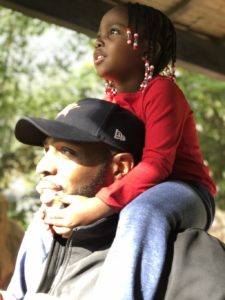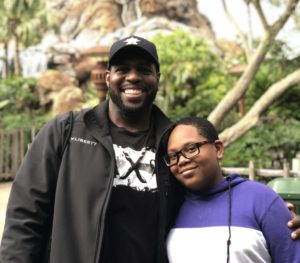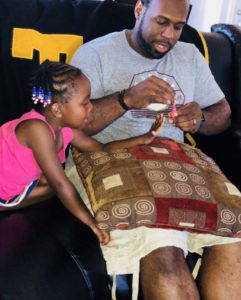I’ve had multiple conversations about our society’s tendency to praise fathers for completing tasks that mothers are often expected to do without acknowledgment. This includes combing daughters’ hair, changing diapers, bathing children, attending parent-teacher conferences, and many others. It can feel like a slap in the face every time we see another viral post heralding fathers for doing what most of us simply call parenting.
Yet the reality is, in our everyday lives active fathers are often subject to sarcastic jokes that poke fun at men’s assumed inability to parent adequately. These comments aren’t only targeted at the fathers themselves but also their co-parents and spouses. In my discussions, both online and offline, their partners have lamented every, “OMG, who will keep your children while you’re gone?” type of question received when discussing trips or time away.
 Given that child-rearing duties have historically fallen squarely on mothers, the pervasive idea that fathers aren’t quality caregivers is understandable. There’s no argument that society’s expectations of men heavily contributed to the meager 2.5 hours of weekly childcare they provided in 1965. But the evolving nature of family in America has more than tripled fathers’ average time spent weekly on childcare (Bianchi et. al, 2006; Pew Research Center, 2016).
Given that child-rearing duties have historically fallen squarely on mothers, the pervasive idea that fathers aren’t quality caregivers is understandable. There’s no argument that society’s expectations of men heavily contributed to the meager 2.5 hours of weekly childcare they provided in 1965. But the evolving nature of family in America has more than tripled fathers’ average time spent weekly on childcare (Bianchi et. al, 2006; Pew Research Center, 2016).
It would be dishonest of me to even suggest that, in heterosexual households, mothers and fathers are spending an equal amount of time caring for children. There are no empirical studies to defend such an assertion. It’s simply not factual.
My concern revolves around a few issues:
- People’s seeming disinterest in recognizing that more fathers are choosing to be actively involved in caring for and raising their children;
- People’s commitment to keeping harmful gender norms alive;
- People’s need to praise fathers for mundane tasks they simply expect from mothers; and
- People’s resistance to acknowledging that quality parenting is a result of socialization and choice, not strictly biology.
By teaching young girls how to nurture others, we teach that nurturing is what we expect from them in adulthood, yet we don’t seem to see the parallel with young boys. American culture didn’t teach boys to nurture the way it did girls, which yielded fathers who weren’t expected to care for their children as mothers were. Ample research—both qualitative and quantitative—indicates that, and people still ignore it.
Today we’re seeing fathers who put forth genuine effort in being intentional, nurturing parents in larger quantities than previous generations, and other adults take cheap shots at them because “men aren’t good at that” or “that’s not a man’s job.”
My husband and I both work full-time jobs, but it’s important to us that our children grow up seeing their father as more than a hard-nosed, unemotional financial supporter. They see him handling morning and bedtime routines, cooking dinner, cleaning the house, helping with homework, going to the pediatrician’s office, etc. Those tasks aren’t just for moms.
Honestly, I can’t even think of a task that was “mine” outside of nursing both of them. His consistent involvement makes it a non-issue when I have to go out of town. I don’t have to leave a substitute folder of information for him because he knows it already. Our family style has made things much more bearable.
I think appreciation is important, so I don’t begrudge people showing it to fathers who are making a wonderful difference in their children’s lives. I only hope that we’re holding parents to the same standard. I think being careful with our words is also important. You might think that “male/father incompetence” quip is funny, but it’s not to the father or partner to whom you’re directing it, especially after the 1,000,000th time.











